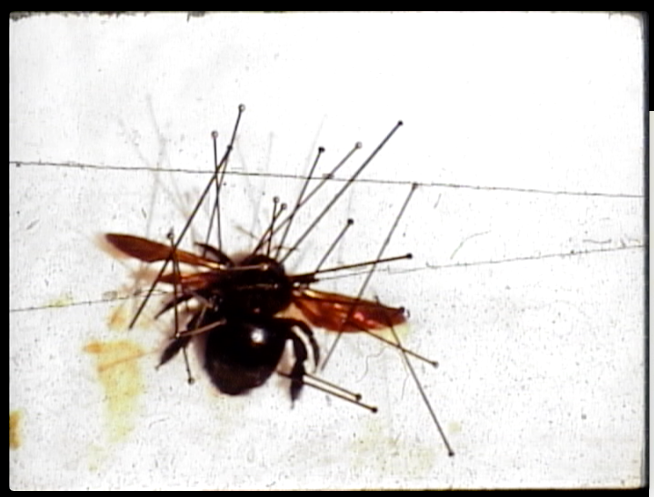Wednesday, February 8, 2017 at 11:30am in Angell Hall 3222
Altering the string figures held by Donna Haraway—most notably from her essay “A Game of Cat’s Cradle: Science Studies, Feminist Theory, Cultural Studies” where she opens with the line: “The tradition of the oppressed teaches us that the ‘state of emergency’ in which we live is not the exception but the rule” (59)—I want to pull forward questions about microbial life, particularly Human Immunodeficiency Virus (HIV) and Toxoplasma gondii, to think broadly about trans* “nonbeing” or not-yet-human. So often the accounts of human and nonhuman interaction are defined by face-to-face, immediacy, and direct modes of contact, which reinforce anthropocentric and colonial notions of encounter, as well as an assumption that all humans have accessed to the promise of Humanism. However, microbial life not only complicates “contact zones,” but also the certainty of liberal humanist notions of agency, subjectivity, and power. In strikingly similar ways, trans*+ (particularly, trans women living with AIDS) reveals the deadly precarity of these same ontological claims.
Lunch Workshop on “FingeryEyes: Impressions of Cup Corals”
Thursday, February 9, 2017 at 12:30pm in the Comparative Literature Library Tisch Hall 2021c RSVPs to Lauren Benjamin (labenj@umich.edu) for lunch appreciated but not necessary
Eva Hayward is an assistant professor in Gender & Women’s Studies at the University of Arizona, Tucson. Her research focuses on aesthetics, environmental and science studies, and transgender theory. She has recently published articles in Transgender Studies Quarterly, differences, Cultural Anthropology, Parallax, Women’s Studies Quarterly, Women and Performance, and GLQ. Her book, SymbioSeas, on underwater representations and trans-species mediations is forthcoming.
The Animal Studies Speaker Series is co-sponsored by the Institute for Research on Women & Gender, the Department of Comparative Literature, the English Department, the Department of Afroamerican and African Studies, the Department of Women’s Studies, and the Institute for the Humanities.



